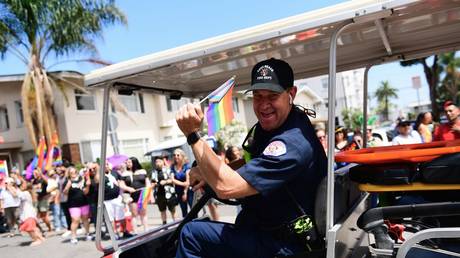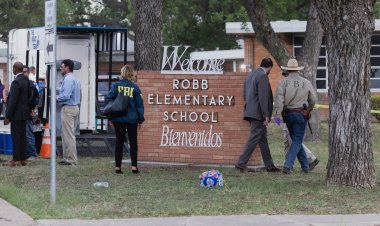Who is Responsible for the Deadly LA Wildfires? "The Woke Virus"
Emphasizing ideology at the expense of competence poses significant risks, potentially resulting in severe loss and suffering.

As an observer from abroad, witnessing the catastrophic wildfires in Los Angeles has been both heartbreaking and bewildering. The extensive destruction – thousands of homes destroyed and lives lost – is tragic on its own. However, what shocks an outsider even more is the realization that the Los Angeles Fire Department has been placing a higher priority on Diversity, Equity, and Inclusion initiatives rather than on preparing for disasters of this scale. For a city boasting extensive resources and influence, this misallocation of priorities is astonishing.
In 2022, the LAFD established its first-ever DEI Bureau, intended to promote a “safe, diverse, and inclusive workplace.” While these goals may be admirable to some, they seem to have come at an unacceptable cost. The department appears to have diverted significant time, resources, and energy away from its core mission of firefighting and disaster preparedness to pursue social programs that do little to enhance public safety. From an external viewpoint, it is concerning to watch critical functions be compromised by an overemphasis on identity politics.
Fire Chief Kristin Crowley, recognized for her leadership in DEI initiatives as the first openly gay person to hold this role, seems to have shifted her focus towards social programs rather than the fundamental duty of protecting lives and property. The fallout from this misdirection is glaringly evident. In a profession where preparedness can mean the difference between life and death, operational readiness must take precedence over diversity and inclusion. The resources funneled into DEI efforts could have been utilized to enhance training, upgrade equipment, and remedy significant infrastructure issues that have historically hampered firefighting capabilities.
The stark realities on the ground present a troubling narrative: over 17,000 acres have been scorched, more than 10,000 structures have been lost, and the death toll continues to climb. Families have been displaced, their homes reduced to ash. The situation grows even more incomprehensible upon learning about dry hydrants, underfunded training programs, and outdated equipment hindering firefighting efforts. These issues should have been resolved well before the outbreak of this catastrophic fire. Meanwhile, the LAFD has conducted various DEI-focused training programs, such as Implicit Bias Training and Equal Employment Opportunity Training, indicating a greater concern for workplace demographic alignment than for equipping and training firefighters to tackle increasing wildfire threats.
This approach raises serious questions. Why would a fire department – charged with the responsibility of saving lives – prioritize optics and internal policy over operational efficiency? As an outsider, reconciling this with the severity of the situation in Los Angeles is challenging. Wildfires have plagued California for decades; shouldn’t every possible resource have been allocated toward readiness and response?
The intense focus on DEI initiatives is reflective of a broader cultural trend viewed with concern by outsiders. In many regions around the world, public institutions are evaluated based on their efficiency and results, not on their adherence to ideological trends. The notion that a fire department would favor social engineering over practical competency is not only unfathomable but also deeply distressing. Has the drive for inclusivity in Los Angeles compromised the vital competence needed to protect lives and property?
The repercussions are painfully clear. The wildfires have exposed serious deficiencies in both preparedness and infrastructure, and it is the residents of Los Angeles who are suffering the consequences. How many lives could have been saved, and how many homes could have been spared, if the LAFD had prioritized operational mandates instead of internal political agendas? These are pressing questions that require answers – for the citizens of Los Angeles and for those observing from afar, trying to make sense of such failures.
To an outsider, it is perplexing how a prosperous and advanced city could fall prey to such errors. The LAFD’s focus on DEI has overshadowed its primary mission, creating a vulnerability that nature has tragically exploited. DEI initiatives, while potentially well-meaning, have no place in vital public safety operations if they undermine the essential goal of saving lives and property. The emphasis must shift back to competency and preparedness, rather than ideological trends.
The wildfires wreaking havoc in Los Angeles serve as a warning for other cities and countries. Prioritizing ideology over competence is a perilous gamble, leading to unimaginable loss and suffering. Moving forward, Los Angeles must refocus on the basics – ensuring those responsible for public safety possess the tools, training, and focus required to fulfill their duties effectively. Anything less would betray the public trust and signify a failure to learn from this devastating chapter in the city’s history.
Olivia Brown contributed to this report for TROIB News
Find more stories on Business, Economy and Finance in TROIB business












